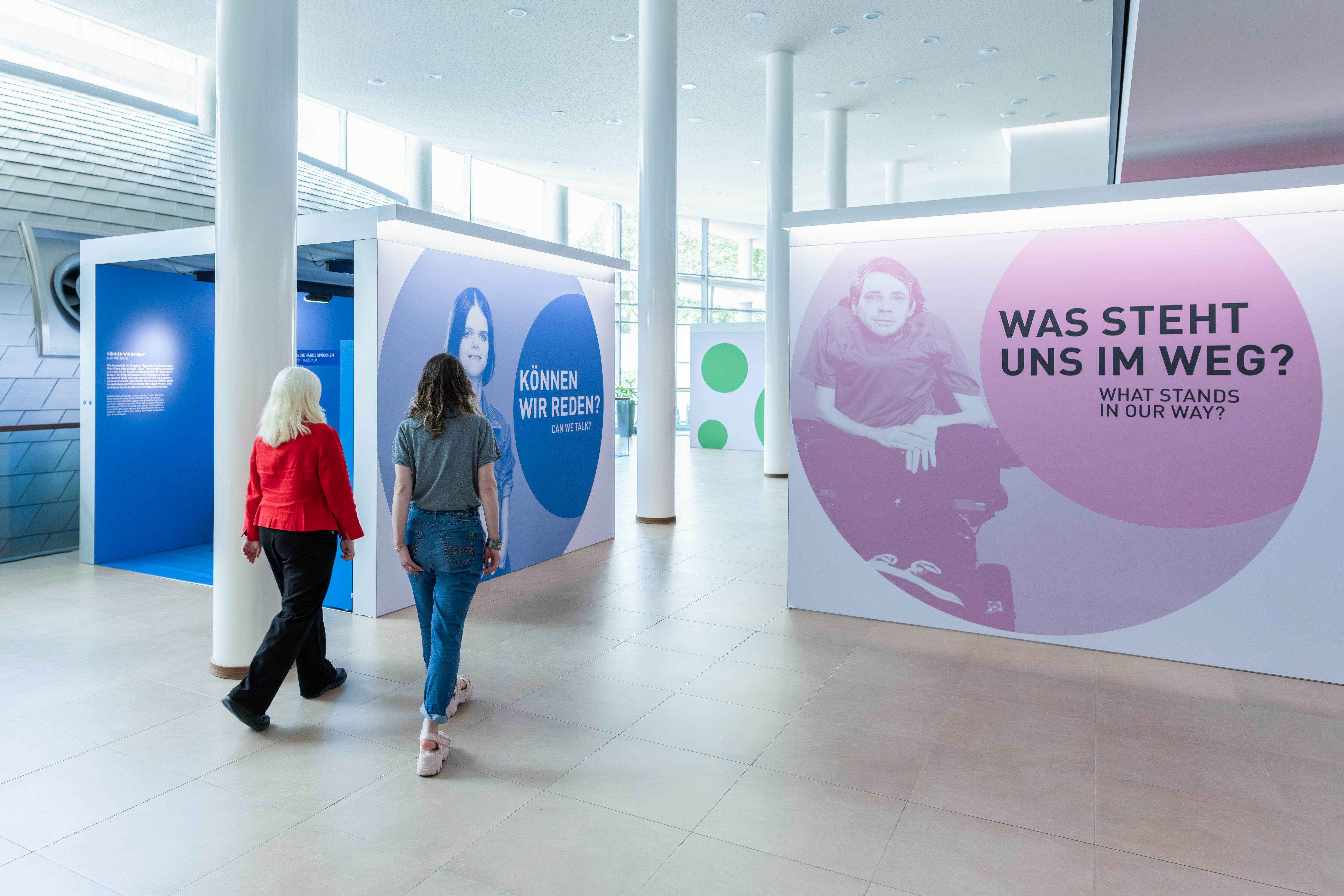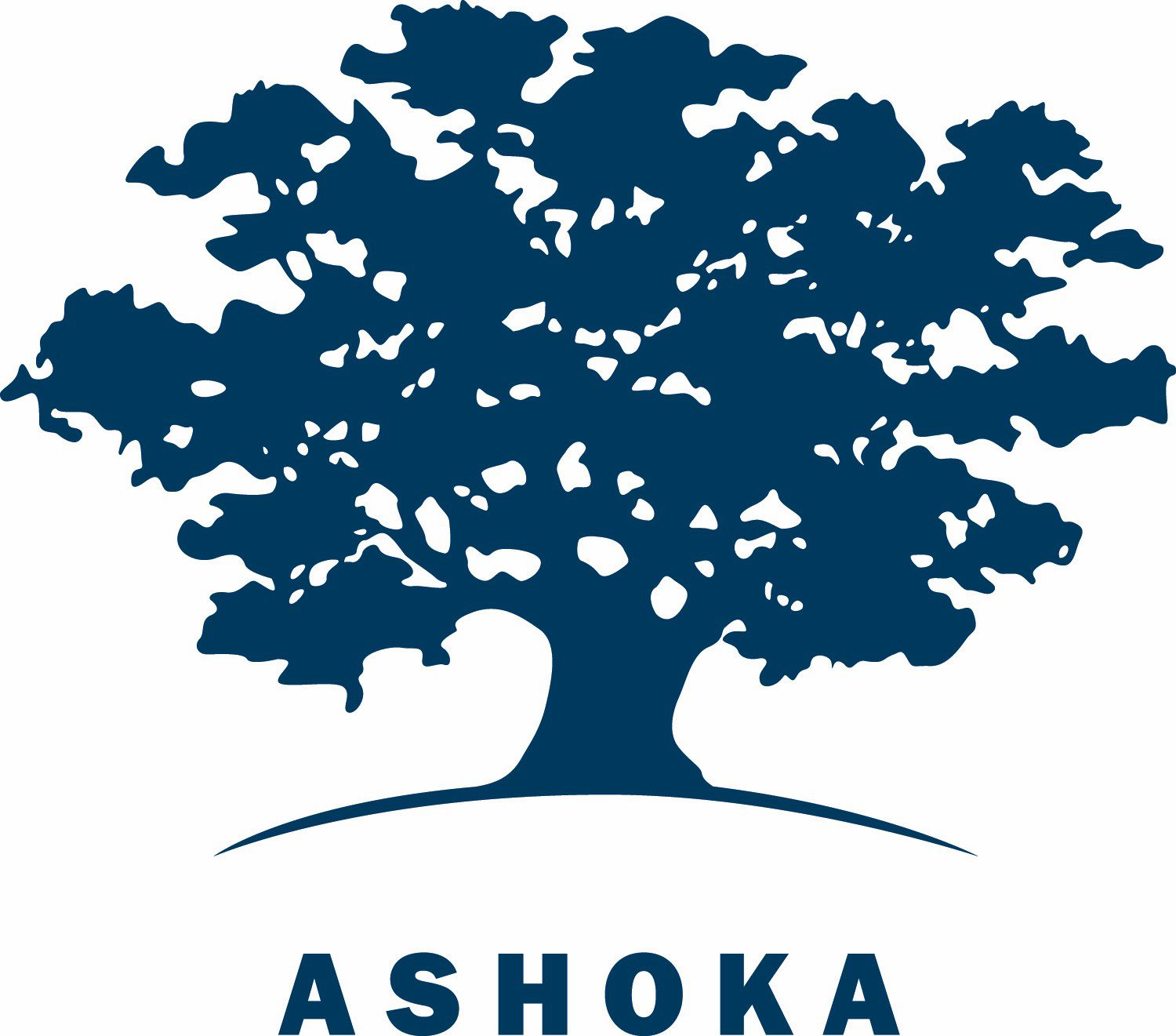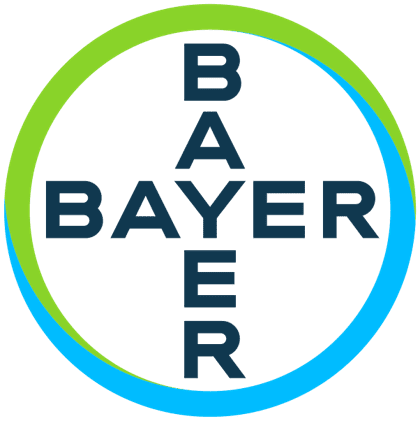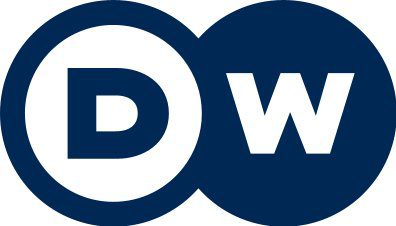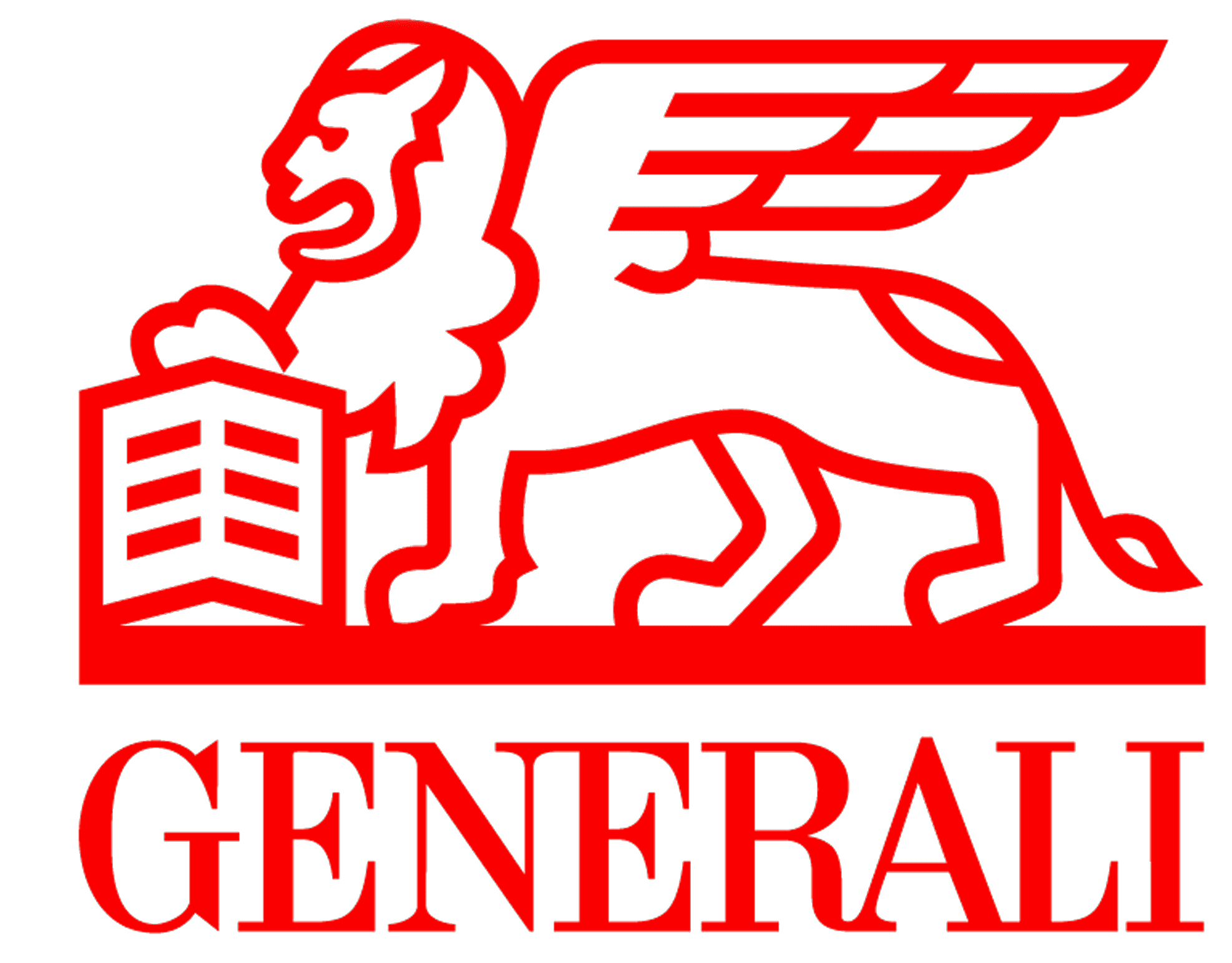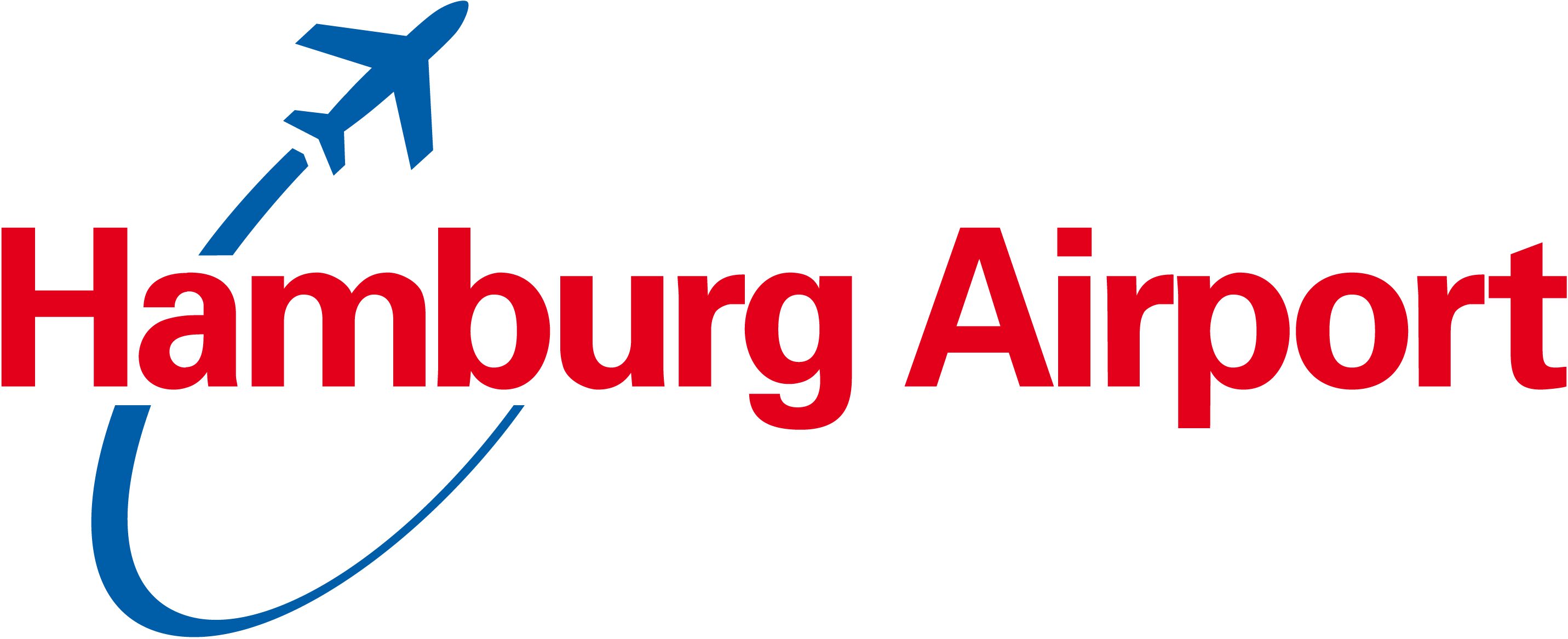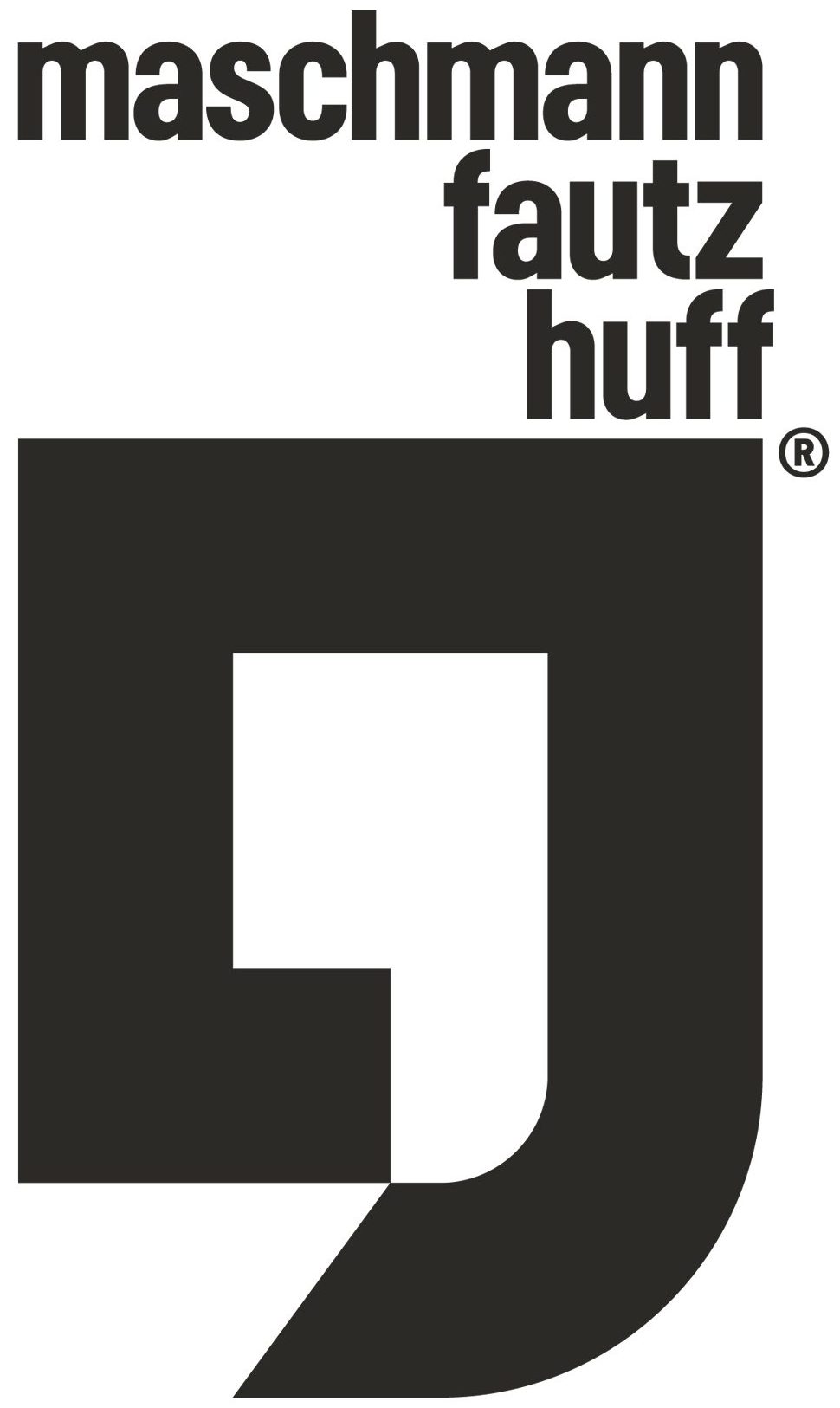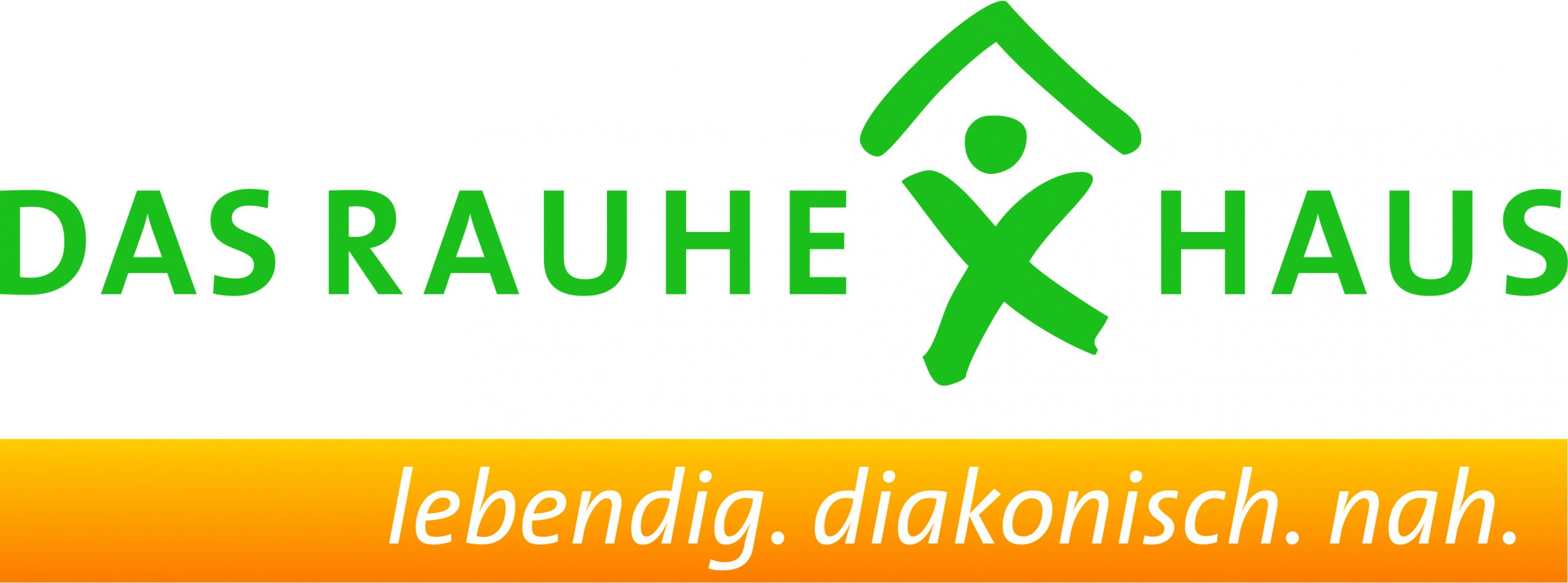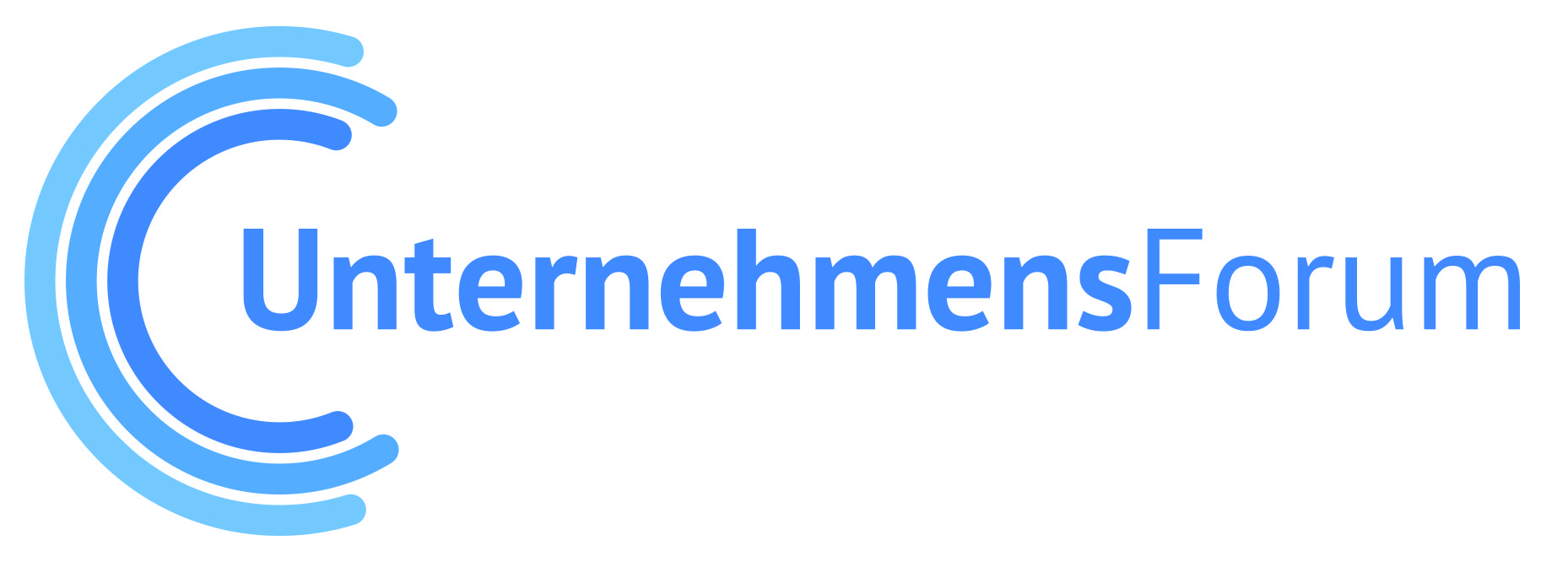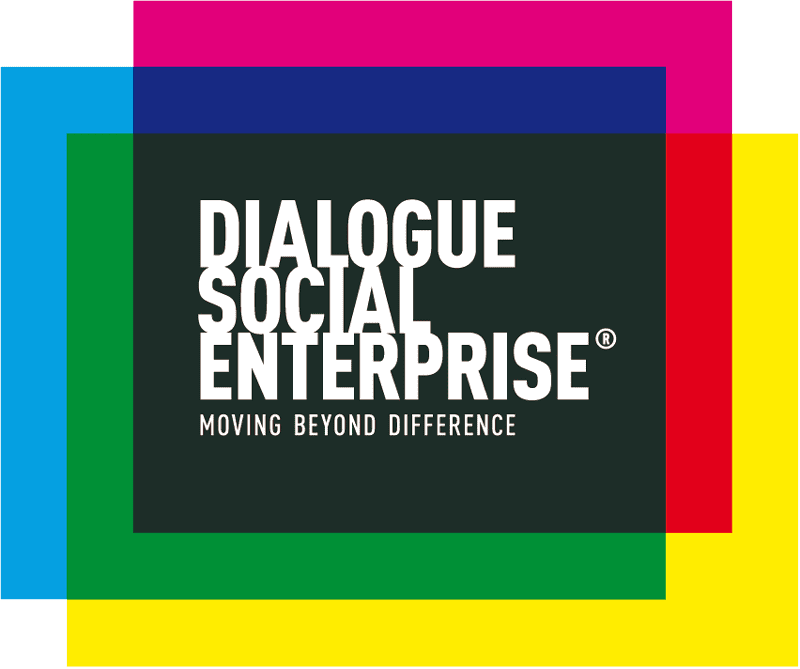The Model Project Innoklusio
The model project Innoklusio® is a journey with lots of stops, people and perspectives involved. On our journey, we aim to foster inclusion competence in our 14 pilot companies, support people with disabilities and initiate cultural change. Innoklusio is a three-year model project of Dialogue Social Enterprise GmbH (DSE) and is funded by the German Federal Ministry of Labor and Social Affairs (BMAS). The project is scientifically accompanied by the Hamburg University of Applied Sciences (HAW). The results of the evaluation will be published in the third year of the model project in 2024.
The Vision
Innoklusio® creates new paths to a working world in which people with and without disabilities mutually generate economic and social added value.
Therefore, we offer our partners a three-part program: Therefore, we offer our partners three modules: a mobile exhibition travels from one company to the other, a leadership seminar trains in inclusive management and an occupational educational program promotes inclusion managers in the pilot companies.
The Exhibition
Impulses for a Cultural Change
The mobile exhibition provides visitors with an interactive experience with various exhibits on inclusion and disability. The so-called black box marks the climax of the exhibition. It is the trademark of the exhibition Dialogue in the Dark® in the Hamburg Dialoghaus. Inside, there is complete darkness. The visitors must orientate themselves using their other senses and are guided by visually impaired guides in various learning experiments. In addition to the black box, four portals with numerous exhibits invite the visitor to interact.
Usually, it is hosted directly on the company grounds for one week. On an area of approximately 200m², up to 50 employees per hour can visit the exhibition.
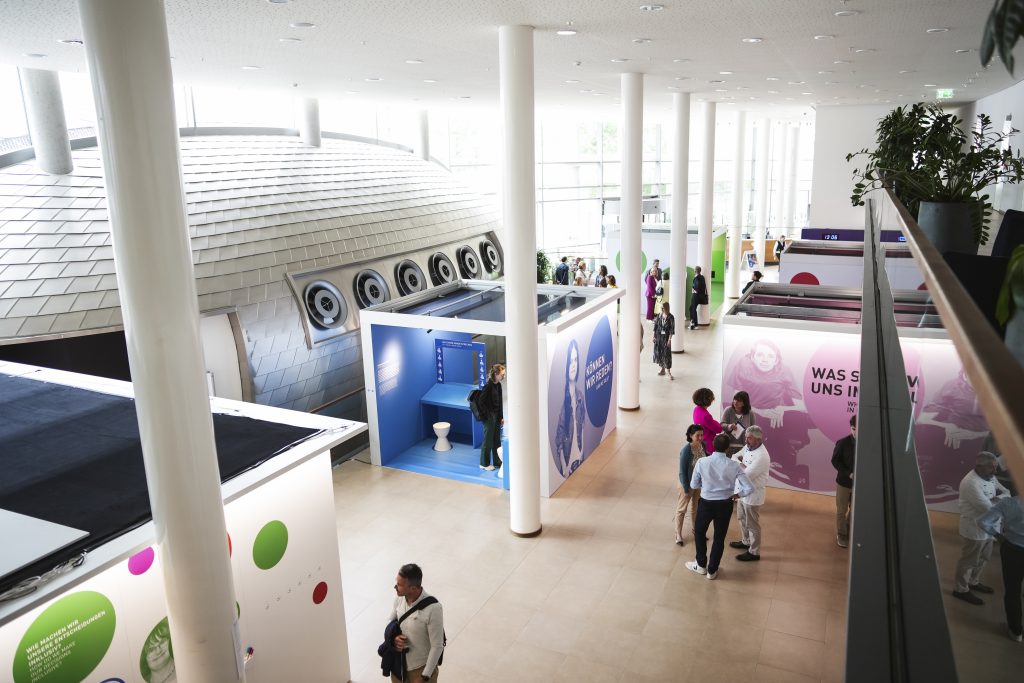
This low-threshold offer serves to raise the awareness of the employees. Participants recognize patterns of bias and exclusion. They are motivated to advocate for inclusion and for the needs of people with disabilities in their organizations. Our exhibition thereby builds on three key impulses:
1. Encounter
Through the exhibition, we address all employees of the companies. It creates an open dialogue within the workforces, between people with and without disabilities. The visitors gain awareness of their own behavior and consider disabilities in a differentiated way. Through the exchange of experiences, the exhibition awakens the interest of the staff in anchoring inclusion in different areas of their companies.
2. Information
The exhibition provides specific knowledge on implicit and explicit attitudes and on inclusive and exclusionary behavior. Questions on possible insecurities in communication and language as well as questions on disability are addressed and answered.
3. Communication
The exhibition offers companies an excellent opportunity to communicate their willingness towards more inclusion in the workplace, both internally and externally. Thus, the companies initiate a cultural change, position themselves as attractive, inclusive employers and improve their position in the market as they underline their ambitions for more participation and diversity.
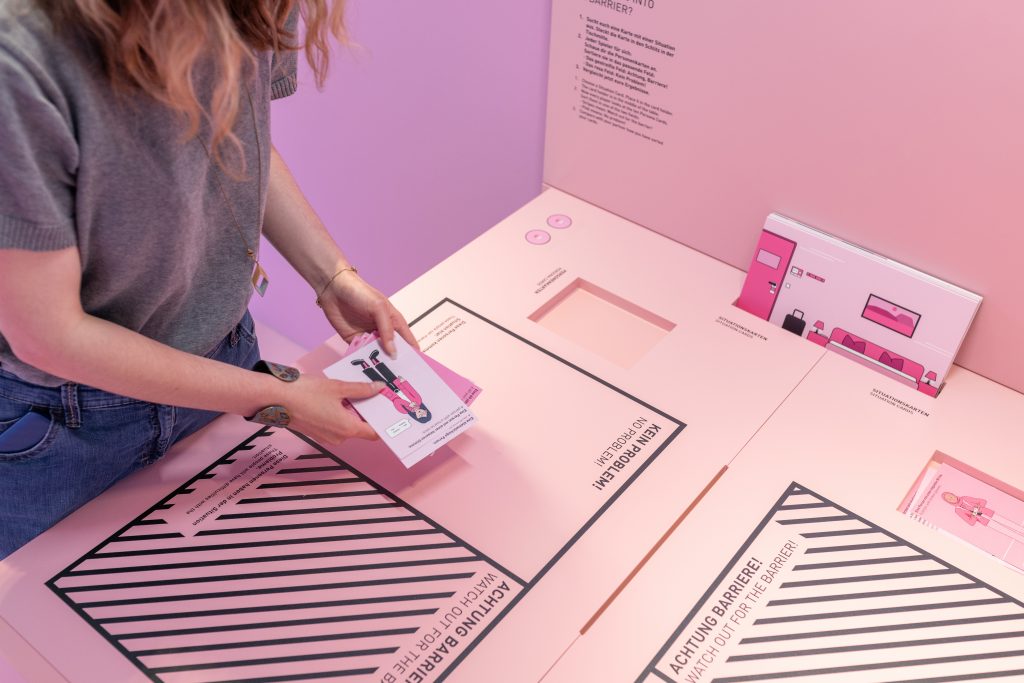
The Leadership Seminar
Inclusion as Strategic Business Decision
In a one-day seminar, leaders encounter the topics of disability and inclusion. The seminar focuses on self-awareness and reflection, since effective leadership behavior begins with one’s own attitude, which radiates into teams and organizations. For this, we use the experience of more than 20 years of Dialogue in the Dark® workshops. Darkness serves as an effective catalyst for learning processes and as a metaphor for what drives companies today: dealing with change and uncertainty, building resilience, or developing communication skills.
The core of the seminar is a sequence in complete darkness in which the managers solve complex tasks under the guidance of moderators with disabilities. They act outside their routines, are emotionally challenged, and gain problem-solving skills. Under these unusual and demanding circumstances, trust, creativity, and dialogue help them to achieve common goals and unfold their potential.
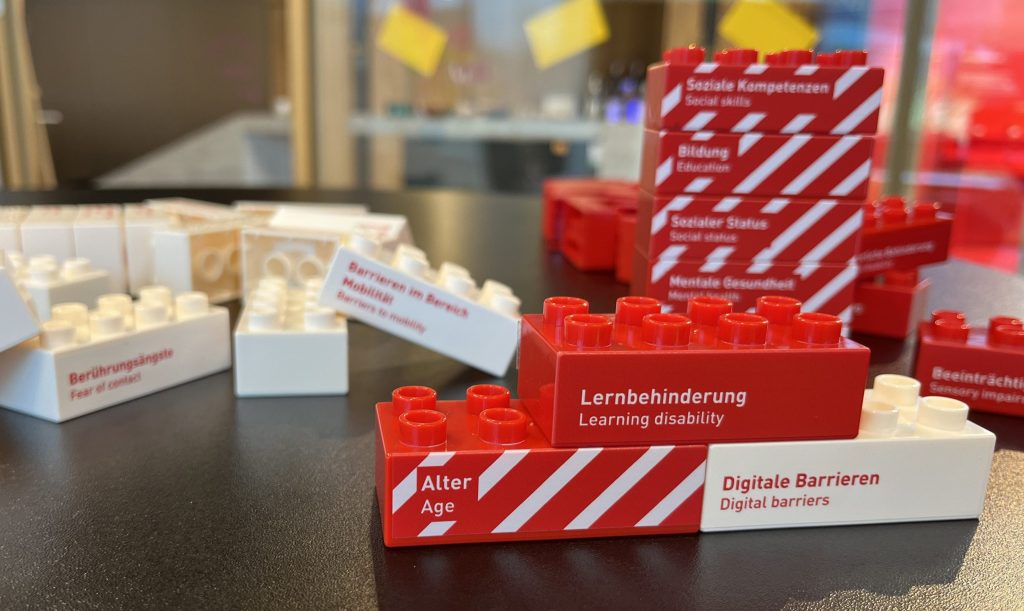
Following this new intervention in darkness, the experience is raised to a cognitive level in a moderated discussion. The leaders become aware of coping strategies and acquire a vocabulary to express their experience. They sense: disability affects me.
The participants will then be provided with a learning space in which they can contribute specific challenges arising from their practice and connect them with the experiences gained in the dark. Through the seminar, the managers understand inclusion as a strategic business decision that secures their future, promotes innovation, retains employees, and identifies them as attractive employers. Thus, the managers pioneer an inclusive working world and strengthen their companies as socially responsible stakeholders.
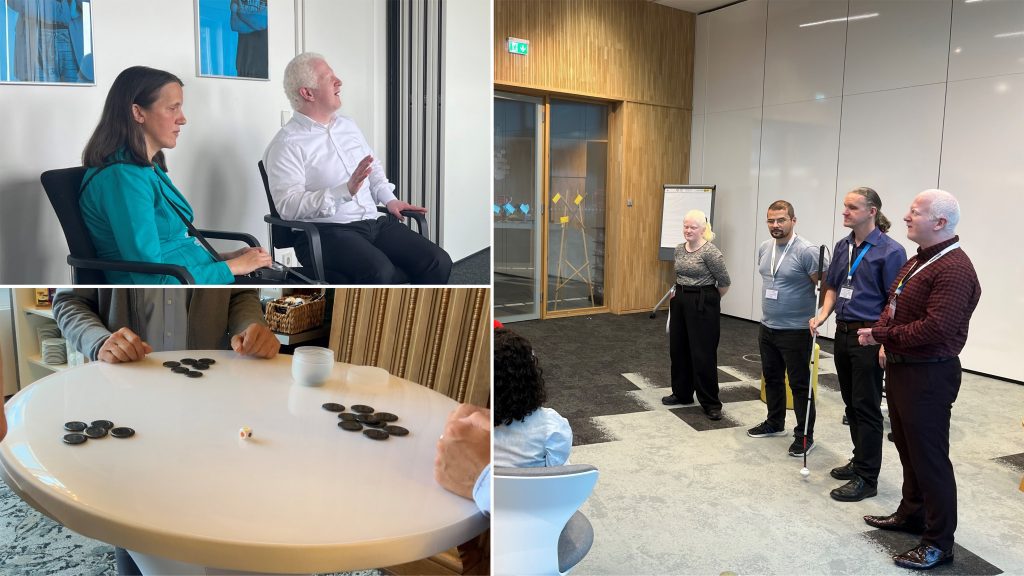
The Educational Program
Promoting Inclusion Competence Sustainably
We promote inclusion competence in companies and organizations in a sustainable manner. Therefore, we develop a six-month, occupational educational program aimed towards employees who want to anchor and drive the topic forward in their companies (human resources managers, inclusion representatives, CSR & Diversity Managers, etc.). The initiator of the educational program is Dr. Andreas Heinecke, founder of Dialogue Social Enterprise GmbH. The program is conducted in cooperation with the University of Applied Sciences for Social Design.
The program fosters the participants‘ self-reflection skills and self-efficacy. They reflect on their own attitudes towards inclusion, increase their interpersonal competence in peer groups and learn in a network. In doing so, they build knowledge on how to initiate complex change processes in their organisations in order to create framework conditions for more people with disabilities in the working world. Following the program, the participants can use their gained competences to set up initiatives for participation-oriented structures, processes, strategies and cultural changes in their companies. After the education program, the participants are empowered and encouraged to initiate and accompany a transformation in their company towards inclusion. They will be able to convince others of the added value of an inclusive working environment, the employment of people with disabilities and the conformity of legal requirements, overcome resistance and build alliances within and outside their companies and organisations.
The learning objectives are divided into three levels:
- Conveying factual knowledge
- Building knowledge and understanding
- Practical application in their own organisational context
The educational program combines best practices with state-of-the-art research findings, thereby creating a stable foundation for deriving coherent organisational and cultural development measures and transformation in the short and long term. In face-to-face and online modules, participants are provided with a comprehensive overview of social, economic, scientific and legal issues related to the inclusion process. Trainers lead through the three classroom modules, which last several days, and provide the framework for the educational program. The classroom modules cover the following main topics:
- Module 1: Introduction Inclusion Management
- Module 2: Accessibility
- Module 3: Inkluthon
The classroom modules are accompanied by six online modules which, with the support of speakers, delve into individual key topics such as change processes, invisible and psychological disabilities or transformation processes.
These Pilot Companies Strike Out on the Journey
To drive cultural change and generate economic and social added value, it takes people, institutions, and companies to pave the way. Our 14 pilot companies are convinced by the approach of the pilot project. They are large international corporations, small and medium-sized enterprises as well as organizations from the social sector. They are all united by one goal: to foster inclusion in their organizations, to break down barriers and to recognize and use the potential of people with disabilities. They join forces to create change.
